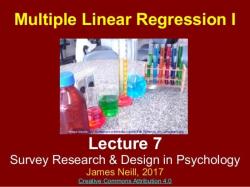What does superiority complex mean?
A superiority complex refers to an attitude of superiority that conceals actual feelings of inferiority and failure. It is a psychological term used to describe a defense mechanism in which individuals, often to compensate for deep-seated insecurities and low self-esteem, adopt an outwardly confident and superior demeanor. This complex was introduced by Austrian psychoanalyst Alfred Adler as part of his theories on personality.
Here are key components and interpretations of a superiority complex:
Overcompensation for Inferiority:
- The term "superiority complex" suggests that, paradoxically, individuals who display this attitude are often compensating for underlying feelings of inadequacy and inferiority. The outward display of superiority is a defense mechanism to mask these insecurities.
Exaggerated Sense of Self-Importance:
- Individuals with a superiority complex tend to hold an exaggerated belief in their own importance, abilities, or qualities. This belief is not necessarily grounded in objective accomplishments but is a psychological mechanism to create a sense of self-worth.
Inability to Acknowledge Faults:
- One characteristic of a superiority complex is the difficulty individuals may have in acknowledging their own faults or mistakes. Admitting vulnerability or imperfection can be threatening to the façade of superiority they have constructed.
Need for External Validation:
- Despite projecting an air of superiority, individuals with this complex often have a deep need for external validation and approval. Their self-esteem is closely tied to the recognition and affirmation they receive from others.
Competitiveness and Comparison:
- A superiority complex often manifests as a competitive nature and a constant need to outperform others. Individuals with this complex may engage in frequent comparisons to maintain their perceived superiority.
Fragile Self-Esteem:
- Paradoxically, those with a superiority complex often have fragile self-esteem beneath the surface. The constant need to assert superiority is a compensatory mechanism for underlying feelings of inadequacy.
Impact on Relationships:
- The attitude of superiority can hinder the development of genuine and meaningful relationships. Others may find it challenging to connect with someone who consistently projects an air of superiority.
Defensiveness in Response to Criticism:
- Individuals with a superiority complex may react defensively to criticism. They may perceive any form of criticism as a threat to their perceived superiority, leading to defensiveness or dismissive behavior.
Addressing a superiority complex often involves self-reflection, gaining awareness of underlying insecurities, and developing healthier coping mechanisms and interpersonal skills. Psychotherapy, such as cognitive-behavioral therapy (CBT) or Adlerian therapy, may be helpful in exploring and addressing the root causes of a superiority complex.
What's the definition of a superiority complex?
A superiority complex is a psychological defense mechanism characterized by an exaggerated sense of one's own importance, abilities, and achievements. Individuals with a superiority complex believe they are intellectually, morally, or socially superior to others. This inflated self-worth manifests in various ways, including:
Key characteristics:
- Boasting about achievements and belittling others: They may constantly talk about their successes and put down others to feel superior.
- Lack of empathy and sensitivity to criticism: They struggle to understand and appreciate the feelings of others and react defensively to any form of criticism.
- Need for control and validation: They often seek constant admiration and validation from others and feel the need to be in control of any situation.
- Difficulty with relationships: Their inflated self-image can make it challenging to maintain healthy and balanced relationships.
Underlying causes:
While the exact causes are unclear, several factors may contribute to a superiority complex:
- Childhood experiences: Praise, comparisons, and lack of criticism during childhood can contribute to an inflated self-image.
- Low self-esteem: Paradoxically, a superiority complex can mask underlying feelings of insecurity and inadequacy.
- Personality traits: Individuals with narcissistic or other personality disorders may be more prone to developing such a complex.
- Social environment: Surrounding oneself with overly flattering and admiring individuals can further reinforce feelings of superiority.
Impact:
A superiority complex can have negative consequences on both individuals and their relationships:
- Social isolation: Their arrogance and condescension can push others away, leading to loneliness and isolation.
- Missed opportunities: Their reluctance to learn and adapt can hinder both personal and professional growth.
- Relationship problems: Their need for control and lack of empathy can cause conflict and dysfunction in relationships.
- Mental health issues: The constant pressure to feel superior can contribute to anxiety, depression, and other mental health concerns.
Treatment:
Therapy can help individuals address the underlying causes of their inflated self-worth and develop healthier coping mechanisms. Cognitive-behavioral therapy (CBT) can be particularly effective in challenging negative self-beliefs and fostering a more realistic self-image. Additionally, developing empathy and understanding for others can help individuals build stronger and more meaningful connections.













